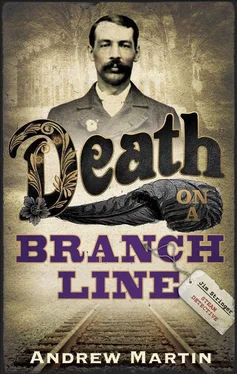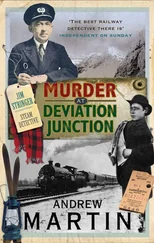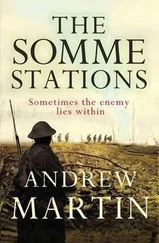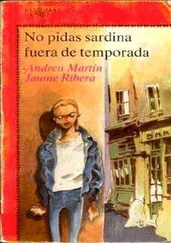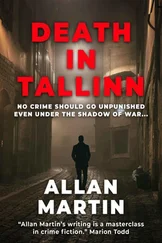Andrew Martin - Death on a Branch line
Здесь есть возможность читать онлайн «Andrew Martin - Death on a Branch line» весь текст электронной книги совершенно бесплатно (целиком полную версию без сокращений). В некоторых случаях можно слушать аудио, скачать через торрент в формате fb2 и присутствует краткое содержание. Жанр: Классический детектив, на английском языке. Описание произведения, (предисловие) а так же отзывы посетителей доступны на портале библиотеки ЛибКат.
- Название:Death on a Branch line
- Автор:
- Жанр:
- Год:неизвестен
- ISBN:нет данных
- Рейтинг книги:5 / 5. Голосов: 1
-
Избранное:Добавить в избранное
- Отзывы:
-
Ваша оценка:
- 100
- 1
- 2
- 3
- 4
- 5
Death on a Branch line: краткое содержание, описание и аннотация
Предлагаем к чтению аннотацию, описание, краткое содержание или предисловие (зависит от того, что написал сам автор книги «Death on a Branch line»). Если вы не нашли необходимую информацию о книге — напишите в комментариях, мы постараемся отыскать её.
Death on a Branch line — читать онлайн бесплатно полную книгу (весь текст) целиком
Ниже представлен текст книги, разбитый по страницам. Система сохранения места последней прочитанной страницы, позволяет с удобством читать онлайн бесплатно книгу «Death on a Branch line», без необходимости каждый раз заново искать на чём Вы остановились. Поставьте закладку, и сможете в любой момент перейти на страницу, на которой закончили чтение.
Интервал:
Закладка:
One by one, most of the fielding players disappeared into the edge of the woods. The ball was lost. The two batsmen met in the middle of the pitch for a confab, and the wicket keeper took one of his gloves off and examined his hand, which was evidently just as fascinating as his boots. The wife came wandering up to me again.
‘What’s happened now?’
‘They’ve lost the ball.’
She rolled her eyes.
One of the fielders, on the border of the woods, was looking agitated and calling to the others, but it wasn’t until the two batsmen broke off their talk that I knew something was up. I half-ran, half-walked across the pitch, and when I came to the edge of the woods, I saw the players gathered around some object. I could not at first make it out, for they surrounded it, and it lay in long grass. I pushed my way through, and saw in the grass a dead dog. Half its head was perfect, and the other half was not there.
‘Shotgun,’ said one of the cricketers, eyeing me.
The dog was a terrier — Mervyn’s, name of Alfred.
Chapter Thirty
When the players went back onto the pitch, I counted a full complement of eleven fielders.
‘I’m sure there was one less before the dog was found,’ I said to the wife, and at that instant the sky darkened yet further, and the rain started again. The players at first walked towards the pavilion, but as the rain came faster they began to run.
‘I don’t think there’s anything for it but to get out into the woods and look for Mervyn,’ I said as, five minutes later, we made our way under the rain back towards the second village green of Adenwold. ‘I’ll borrow an oilskin from the pub.’
‘We’ll be soaked through if we walk in this,’ she said. ‘Let’s sit in the church.’
But it turned out that the Reverend Ridley kept the door locked; so we sat on the two bench seats in the porch, and talked over what had happened and what might happen. At twenty to six, we heard the bolts being released on the inside of the church door, and it swung open to reveal a face I could not at first place: it was Moffat, the amiable man who kept the baker’s shop. He had entered the church by another door. Some muttering between him and the wife revealed him to be a reader at the church or a helper of some sort, or there again perhaps standing in for the verger, who was in Scarborough. At any rate, he passed us hymn books, and showed us to a front pew. Evening Prayer was in the offing.
The baker went away to ring the bell, and I thought of the other bell — the one that would be ringing in Durham gaol in fourteen hours’ time. The church had a medical smell — incense — and was filled with a kind of silvery rain-light. I wondered who would come to the service, since most of the village was in Scarborough. The answer was disclosed over the next five minutes: the baker’s daughter came, and two of the tiny old ladies we’d seen outside the almshouses. They sat at the back, smiling with their faraway eyes. The manservant from the Hall came, and with him the maid who’d assisted him at the party. It occurred to me that they might be married. The manservant smiled a little at me, embarrassed no doubt at having been my gaoler. As the clock was striking six, some of the cricketers came in: big men trying to look smaller as they eased along the pews.
The Reverend Ridley made his entrance at just gone six. He wore a black cassock, and his red head and black body seemed to belong to two different people; the prayer book was tiny in his hand, but it soon became obvious that he hardly needed to look at it. He knew the ropes; he really was a vicar after all. It was a plain, short service: no music, just the vicar, the prayer book and Bible readings from the baker. He did them very well, and I thought: That’s what the fellow’s really about. He was a church-goer first and a baker second.
When the vicar blessed us all, I had an idea we were approaching the end of proceedings, and it was at this point that I heard the scrape of the door opening.
I turned about, half-expecting to see John Lambert, but it was Mervyn Handley who stood there. He held his shotgun by his side, like a staff. The baker immediately rose and went towards him saying, very calmly as it seemed to me, ‘You can’t bring that in here, Mervyn Handley.’
The vicar had paused in his reading. He was eyeing the boy.
‘Where can I put it, then?’ I heard Mervyn ask in a sulky voice.
‘In the umbrella stand in the porch,’ said the baker.
Well, it was the country-side after all. Every man jack was armed. A shotgun in an umbrella stand might be nothing out of the common here. Mervyn went out and came back in, but when he saw me, he coloured up and looked around, as if contemplating a breakaway.
‘What’s he doing in here?’ I whispered to the wife. ‘He’s Catholic.’
‘I’ve an idea,’ said the wife.
The Reverend Ridley finished off the service, and the wife stood up fast and followed Mervyn through the door and into the porch, where he was removing his shotgun from the umbrella stand. The other churchgoers were giving him a wide berth.
‘Don’t you think it would be better if you gave us the gun?’ Lydia asked the boy.
‘No,’ he said.
‘You don’t need to go to church to talk to God, you know,’ the wife ran on. ‘And you don’t need to go for forgiveness.’
The boy kept silence.
We were out into the churchyard now. The rain had stopped; it was only dripping off the trees. A flare of sunlight came through the clouds and the wife said to Mervyn: ‘If you really want to be forgiven, and you really do repent — well then, you already are forgiven.’
‘… Because I don’t much care for goin’ to church,’ said the boy.
‘Not many do,’ I said.
Another silence.
‘It’s dead boring,’ I put in.
‘Oh, don’t listen to him,’ said the wife.
‘I en’t,’ said the boy, and he looked at Lydia as though on the point of further speech.
‘If you know anything about the murder that happened here, you must let on,’ I said. ‘Master Hugh has only fifteen hours left to live.’
At which he turned on his heel.
‘Where are you off now?’ I called after him.
‘Look for me dog,’ he said.
‘No, Mervyn!’ called Lydia, hurrying after him.
I looked across to the vicarage. A woman stood at the garden gate. The Reverend Ridley approached her. She was pretty, in a white dress, and she twirled what was either a parasol or a dainty umbrella. It was the woman who’d been watching the cricket. Ridley wore his cricketing clothes with his cassock slung over his arm. He went quickly up to the woman, and kissed her on the mouth, which put paid to the twirling of the parasol. He then took her quickly indoors.
I turned about to see Lydia standing at the gate of the churchyard and speaking again to Mervyn. Beyond them on the road was the carter, Will Hamer. I hurried up to him, hearing Lydia say to Mervyn, ‘You’re to come back with us to The Angel.’
‘Did you bring that woman here?’ I asked Hamer.
‘Well now,’ he said, ‘I’m not supposed to let on.’
‘What’s her name?’
He grinned down at me with a look of great happiness.
‘Is it Emma?’ I said. ‘Was she the governess at the Hall?’
‘ You know what o’clock it is, don’t you?’ he said, and the grin gave way to laughter.
The vicar and the woman — Emma, as it seemed — were crossing the churchyard, closing on Will Hamer’s rulley. The vicar carried a bag. ‘May I speak to you about the murder of Sir George Lambert?’ I asked, as he approached.
‘Certainly not,’ he said, in a mild enough tone as he and the woman climbed up onto the bench beside Hamer.
Читать дальшеИнтервал:
Закладка:
Похожие книги на «Death on a Branch line»
Представляем Вашему вниманию похожие книги на «Death on a Branch line» списком для выбора. Мы отобрали схожую по названию и смыслу литературу в надежде предоставить читателям больше вариантов отыскать новые, интересные, ещё непрочитанные произведения.
Обсуждение, отзывы о книге «Death on a Branch line» и просто собственные мнения читателей. Оставьте ваши комментарии, напишите, что Вы думаете о произведении, его смысле или главных героях. Укажите что конкретно понравилось, а что нет, и почему Вы так считаете.
